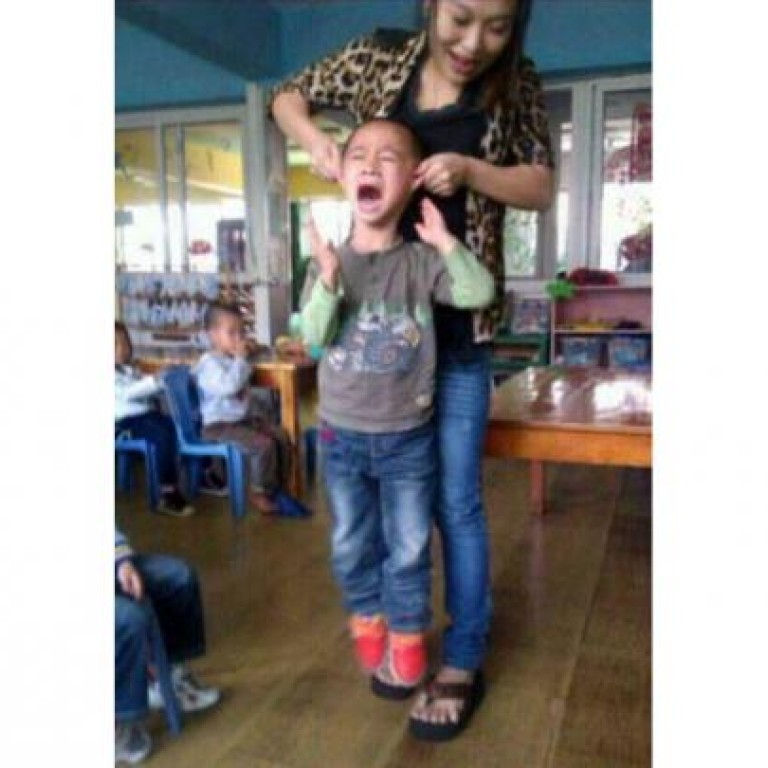
Legal loopholes see abusive mainland teachers let off lightly
Recent cases of mainland teachers abusing students have exposed loopholes in the legal system that have made it hard to hold the abusers criminally liable, lawyers say.
The constitution protects the rights of minors and the country has ratified the United Nations Convention on the Rights of a Child, but when it comes to child abuse, legal experts say the law is not comprehensive enough.
The comments come after public anger over high-profile incidents, including one involving a kindergarten teacher in Wenling , Zhejiang . She was photographed by another teacher picking up a young boy by the ears. Yan Yanhong posted the pictures online.
Yan was detained on suspicion of provoking and disturbing public order, which carries a maximum penalty of five years in jail. The teacher who took the pictures was given seven days' administrative detention.
Beijing lawyer Zhang Zhiwei said that, unlike in the past when people could be charged for such a crime, there was no law covering their offence. Under criminal law an action is only deemed a crime if the law clearly stipulates it is so. Since the law made no mention of child abuse by people other than family members, Zhang said, many cases of child abuse were handled simply with administrative punishment, and the maximum penalty was 15 days' detention.
"Under the current legal framework, Yan can be punished with just 15 days of administrative detention," Zhang said. "But to allay public anger, police and prosecutors had to find a criminal offence [disturbing public order] to use, which violated the principle of the law."
A national law protecting minors is basically just a set of principles, and it is hard to enforce, as criminal law covers child abuse only when it is committed by family members.
Since Yan was not related to her students, the crime of "abuse" was not relevant, and the charge of "causing malicious injury" was ruled out because the children were not injured.
"The recent scandals that aroused public anger all involved people who were not family members but of a certain relationship with the abused child, such as a teacher, nurse or nanny. I think we can expand the definition of abuse by including those people who have a certain relationship with a child," said Zhang Jin, a lawyer with the Beijing Lianggao Law Firm who volunteers on rights-protection cases involving women and children.
Malicious injury, which could cover physical abuse, is only applicable when the victim has suffered at least minor injuries, but it does not apply in many cases of child abuse.
Zhang said there should be an expanded definition of abuse so offenders were covered.

